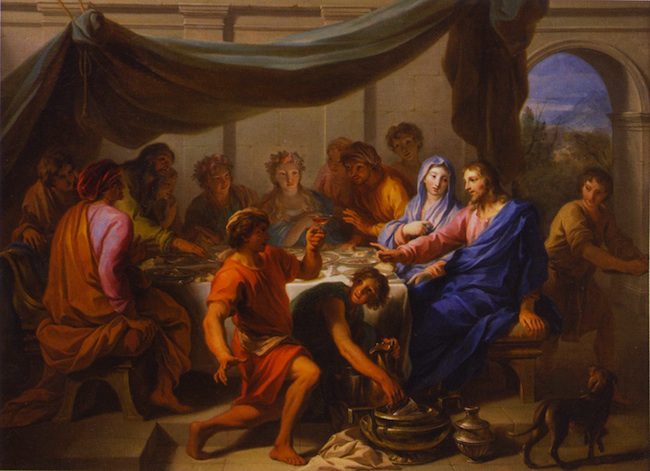Vs. Dr. Lydia McGrew

Dr. Lydia McGrew is a delightful and friendly dialogue opponent, and an Anglican biblical and literary scholar, and author. She showed up when I tagged her in my Facebook cross-posting of my blog paper, Jesus’ “Brothers” Were “Unbelievers”? (vs. Jason Engwer). Her words will be in blue.
***
Hi Lydia,
Jason’s reasoning was drawn from one of your books. And I’d love to discuss Mary more with you, should you agree to that. We had one good, juicy debate (where the Triablogue folks said you kicked my butt). LOL
Not sure why there would be a problem with Jesus’ kinsmen previously disbelieving on him and then changing their minds. It’s not like there is a Catholic doctrine of the immaculate conception of St. James, the kinsman of Jesus! Plenty of saints are converts.
I noted that in the paper:
But I grant that it’s certainly possible that some of Jesus’ relatives — thinking with the carnal mind that virtually everyone possessed before Pentecost — may have vastly misunderstood Him. If so, nothing in that contradicts what Catholics believe. We need only look at Peter (rather remarkably) rebuking Jesus, to see that. We also know from Jesus that the prophet is without honor in his home town. So such a thing is not out of the question or utterly ruled out. But I have provided some arguments showing that it is not necessarily the case, from the text.
So I made an exegetical / reasoned case that they were not “unbelievers”: or if they were, were hardly distinguishable from the disciples.
And I argued that Jason provided no indisputable evidence whatsoever that Mary had less faith than even pre-Pentecost Peter, or had a “wavering” faith.
Well, leaving Mary aside–why would you care about if his brothers vastly misunderstood them? I mean, why not just take the statements in John more at face value concerning the brothers/kinsmen?
I note as well: The fact that Jesus commits Mary to the Beloved Disciple is some evidence that his brothers/kinsmen were unbelievers in a stronger sense at this time. If they had been “indistinguishable from disciples” she would have just had them for company and care, even in the painful time between the crucifixion and resurrection.
I don’t “care” one way or the other. I have no stake in this (apart from Mary, which is dogma). No biggie. I simply gave my opinion on the interpretation of the texts in question. Mark 3:21 is a virtual mistranslation in many versions. RSV reads:
And when his family heard it, they went out to seize him, for people were saying, “He is beside himself.”
Many versions have “they” instead of “people” (likely a direct rendering of the original Greek) which is then thought to be referring to the family members. I thought so myself before I discovered this today. So that is an instance where the text works against the family itself disbelieving, and is one reason why I hold my opinion.
I think John 7:5 is the best argument for Jason’s view, and said so in my paper. But I think it could be limited in application, as I argued (following both Protestant and Catholic commentators). So I hold that view tentatively, but the arguments against Mary were simply non-starters, in my opinion. I know: I “have” to say that, right?: being Catholic. But I truly think there is nothing there, and to believe that Mary had a strong, unwavering faith in Jesus is by no means confined to the Catholic outlook anyway. I certainly would have argued for that when I was an evangelical Protestant.
Her being committed to John is thought by Catholics to reinforce the notion that she had no other sons; else she would be committed to one of them, by Jewish custom. The “brothers” weren’t that bad. After all, it says “his brothers” (RSV) were in the upper room, devoted to prayer (Acts 1:13-14), which implies to me that they were likely there on the Day of Pentecost as well. So they wound up being the first Christians after the disciples to be indwelt by the Holy Spirit. Not bad for Jason’s (and your) “unbelievers” huh? :-)
Well, obviously I’m not saying they were unbelievers then. In fact, the idea is that James in particular (and presumably the others) converted as a result of the resurrection. St. Paul expressly mentions Jesus’ appearance to James, which actually is explanatory–that is, it explains James’s changing from the attitude in John 7 to being a pillar of the early church in the book of Acts.
*
Well, then again they would be little different from the disciples (which is one of my arguments: why single them out as “unbelievers” when they were like even those closest to Jesus?).
The disciples didn’t believe Mary Magdalene’s report of the risen Jesus (Lk 24:10-11), thinking it was an “idle tale”: which shows that they still didn’t have a clue about Jesus having told them many times that He would rise again after three days. The women (bless their hearts) did far better than the dopey, slow men.
Like atheists and Doubting Thomas, apparently they required ironclad proof: Jesus right in front of their eyes before they would believe: just as Jesus chided the Jews for demanding signs all the time.
This is my point: why go after the poor “brothers” because they weren’t sure Jesus was Messiah and God incarnate? Everyone was in the same boat, except for (seemingly) fleeting moments in Peter and a few others.
Mary, on the other hand, knew Who Jesus was from the time on the Annunciation. And there is no biblical indication that I can see, that she ever ceased knowing that or “wavered.”
I think it’s the undue bias of Protestant “anti-Marianism” which is usually simply an overreaction against Catholic Marian piety and dogma. You guys only have the Bible as an infallible authority, so if a thing ain’t there, it ain’t, and that’s all there is to it!
Well, no. The disciples followed him. They were confused and stupid and didn’t always understand. But he had chosen them, they gave up all and followed him. It looks like prior to his resurrection his brothers didn’t take any such positive attitude toward him.
That’s true, and a good point, but it’s the difference between discipleship and nominalism, as opposed to belief and non-belief.
Mary was close to Jesus all along, as far as we can tell (there’s not a lot about it in Scripture, but I would expect that, because it is Christocentric). She was present at His first miracle, obviously at His birth, at the cross, in the upper room at Pentecost. She’s celebrated and venerated as the Woman of Revelation 12. Yet all that doesn’t stop Jason from attacking her faith as inadequate and less than Peter’s faith: the guy who “rebuked” Jesus (having been led by Satan in that instance) and denied Him three times (also Satan-inspired, no doubt).
That’s why I think he is operating in mere Protestant bias. The biblical texts do not support his contention. With the “brothers”, maybe: I grant that (though I’m inclined to disagree). But not Mary.
I’ve always said that Mary’s going along with the others when they went to “stage an intervention” with Jesus need not at all reflect her agreeing with that evaluation. After all from even a Protestant perspective she had seen an angel and knew that she had conceived while a virgin. So it seems really implausible that she would have thought he was crazy. I don’t hold the Catholic view, and I’m not saying that she had everything figured out. I suppose it’s possible that she thought he had gotten off-track. But it seems more likely to me that she went along because it was family drama and she was hoping to provide a moderating influence. It wasn’t like she wasn’t going to be present at such a scene.
***
See also my friend Paul Hoffer’s insightful comment on this debate, posted on my Facebook page.
***
Photo credit: The Wedding at Cana, by Daniel Sarrabat (1666-1748) [public domain / Wikimedia Commons]
***













